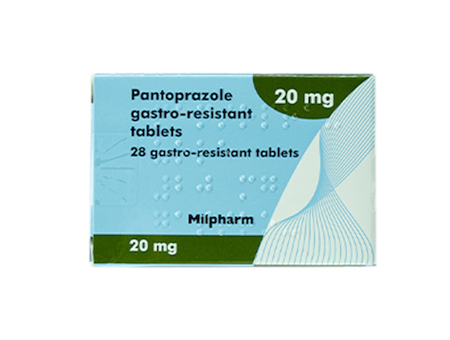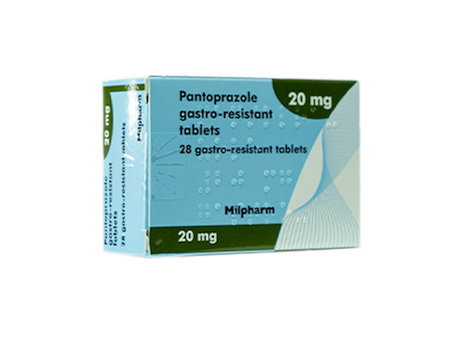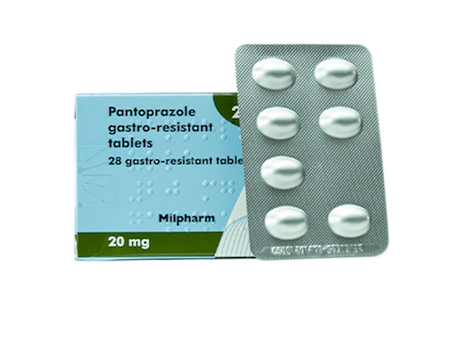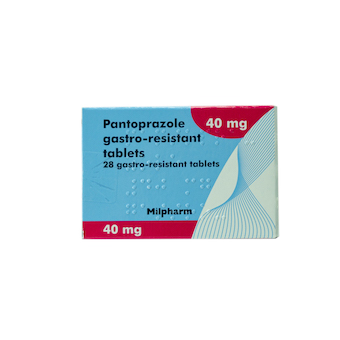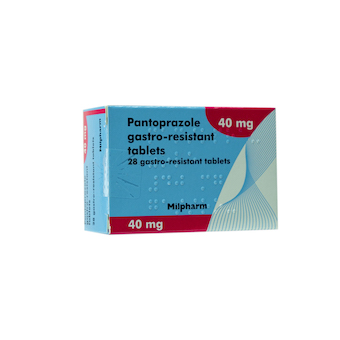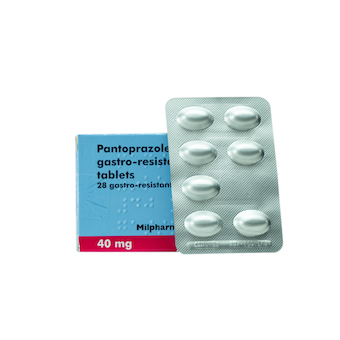Other Options Include
Pantoprazole is a medication that belongs to the class of drugs known as proton pump inhibitors. It is used for treatment of problems related to the stomach and oesophagus, especially acid reflux and heartburn. It works by reducing the amount of acid produced in the stomach, which makes it effective for relieving the symptoms of acid reflux and heartburn. It also helps to heal the damage that results from excess acid production in the oesophagus and stomach. It thus proves to be effective at preventing the formation of ulcers.
Directions
Pantoprazole is a medication and can be initiated with the guidance of a prescriber by answering a few short questions. Please ensure you read the accompanying patient information leaflet before taking this medication. If you have any questions that are not answered by the booklet, ask your doctor or pharmacist.
Your clinician will determine the frequency and duration of your dosage. It will be based on factors such as your medical condition and your response to initial doses. Do not increase your dosage on your own and do not take it for longer than what is prescribed.
You may take the tablet once a day, ideally first thing in the morning with or without food. Do not crush or chew the medication as that may reduce its efficacy.
Side Effects
Common side effects of taking this medication are: Abdominal pain; constipation; diarrhoea; dizziness; dry mouth; gastrointestinal disorders; headache; insomnia; nausea; skin reactions; vomiting. Whilst for most these effects will be mild and subside shortly if they persist or get worse, stop taking the medication and discuss with your doctor right away.
Hypomagnesemia can occur in those taking omeprazole for longer than 1 year (although it can occur as early as 3 months), the frequency at which this occurs is unknown.. The symptoms for it include an irregular heartbeat, prolonged muscle spasms,, and a rash on your cheeks or nose. If you experience any of these symptoms, stop taking the medication and consult your doctor at once. In rare cases, Pantoprazole may potentiate the likelihood of intestinal infections such as 'C. difficile' which is caused by bacteria. This condition can develop while you are taking the medication, but it can also surface weeks or months after stopping the medication. If you start having persistent diarrhoea and stomach pains, tell your doctor at once.
If you get any of the aforementioned symptoms, avoid taking opioids or anti-diarrhoea medications, as they might worsen the condition.
Regular use of pantoprazole can cause osteoporosis which can lead to weak bones. To counteract this effect it is recommended to supplement with regular vitamin D and calcium if this is appropriate.Serious allergic reactions to Esomeprazole are not very likely, but if you notice any symptoms of an allergic reaction after taking it, do not take any more, and tell your doctor about it. Some of the common symptoms of allergic reactions are feelings of itch or swelling in your face or tongue or neck, tightening of the airways, and difficulty breathing. These are signs of a medical emergency.
If you experience any side effects not mentioned here, stop taking the medication and contact your doctor.
Warnings
Before you start a dose of Pantoprazole, tell your doctor about any allergies, particularly in reaction to heartburn medications. This is because some formulations of this medication can contain inactive ingredients that might cause allergic reactions.
Acid Reflux Tablets may hide the symptoms of other diseases. Therefore, if any of the following happen to you before you start taking Acid Reflux Tablets or while you are taking it, talk to your doctor straight away:
You lose a lot of weight for no reason and have problems swallowing.
You get stomach pain or indigestion.
You begin to vomit food or blood.
You pass black stools (blood-stained faeces).
You experience severe or persistent diarrhoea, as omeprazole has been associated with a small increase in infectious diarrhoea.
You have had previous gastric ulcer or gastrointestinal surgery.
You are on continuous symptomatic treatment of indigestion or heartburn for 4 or more weeks.
You continuously suffer from indigestion or heartburn for 4 or more weeks.
You have jaundice or severe liver disease.
You are aged over 55 years with new or recently changed symptoms.
You have ever had a skin reaction after treatment with a medicine similar to Acid Reflux Tablets that reduces stomach acid.
If you get a rash on your skin, especially in areas exposed to the sun, tell your doctor as soon as you can, as you may need to stop your treatment with Acid Reflux Tablets.
Remember to also mention any other ill-effects like pain in your joints.
Patients should not take Acid Reflux Tablets as a preventative medication.
You should inform your doctor or pharmacist if you are
Taking clopidogrel (for clots and thrombi)
Taking Nelfinavir (used to treat HIV infection)
You are due to have a specific blood test (Chromogranin A)
Your body does not absorb vitamin B12 (cobalamin) very well
If you are pregnant, take this medication only when prescribed by your clinician and proven necessary. Pantoprazole passes into breast milk in small amounts though it is unlikely that it will influence your child when therapeutic doses are taken. Your clinician will determine whether it is safe for you to start this medication.
